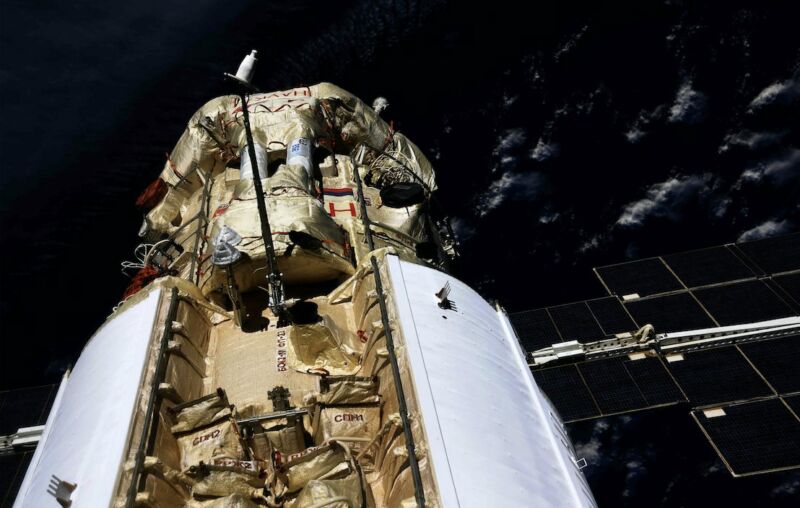The Russian space module Nauka docked with the International Space Station (ISS) on Thursday. After a few technical issues, the giant spaceship arrived at the orbiting laboratory; however, things got slightly out of hand.
Suddenly after three hours, Nauka started firing its propulsion thrusters. This caused the space station to lose attitude control. However, the NASA Mission Control in Houston quickly initiated the relevant procedures. Together with the space team in Moscow, the Nauka space module was stabilized.
As Nauka fire its thrusters on the Russian segment of the space station and towards the Progress supply vehicle, the space module got back to normal after the fuel supply went off. Right after this episode, NASA talked to the press about the incident. However, both teams said the situation was under control, and the astronauts were not in peril.
NASA left the questions about the technical issues to Roscosmos, but the answers were not straightforward.
“Due to a short-term software failure, a direct command was mistakenly implemented to turn on the module’s engines for withdrawal, which led to some modification of the orientation of the complex as a whole,” said Vladimir Solovyov, a senior official in Roscosmos and former cosmonaut.
Although it sounds like a software problem, it seems like it could be a human error. Everyone got excited about the successful link to the ISS that left room for errors.
“Everything was going well, but there was a human factor. There was some euphoria (after the successful docking), everybody got relaxed,” said Dmitry Rogozin, head of Roscosmos.
The question is, is this a one-time episode, or will there be more issues? Moving forward, how will Russian participation affect the mission of the space station? The main purpose of the mission is to maintain human life in low Earth orbit. However, that means to fly the ISS until 2030. This last issue is the third in the last three years, which doesn’t look very promising.


























Leave a Reply